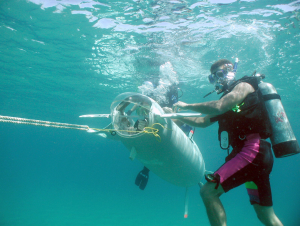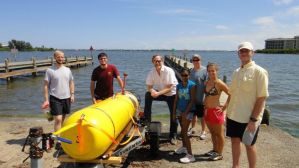Tapping into the Power of Renewable Energy through Ocean Engineering
Ocean engineering is still a fairly new field of study and it’s growing rapidly as researchers investigate the largely untapped potential of energy from oceans and other bodies of water.
Renewable energy is highly sought after because it can alleviate concerns about limited resources and some forms of renewable energy also produce less pollution and emissions than traditional forms of energy like oil, natural gas, gasoline and coal. Part of the ocean engineering field of study seeks to create processes to safely harness the power of the ocean to create renewable forms of energy.
The Power of Ocean Engineering

Although renewable energy resources like the ocean may seem like a panacea for a world highly dependent on energy to run economies and provide for power needs, every form of energy brings with it potential problems as well. A major task of ocean engineers is to anticipate, observe and find solutions to these problems to minimize the negative impact of energy collection on the marine environment.
Impact on Marine Life
The machinery used to harness energy from oceans is large and often contains turbines, blades or suction to move the water where needed. If not implemented with utmost care, the impact of such machinery on marine life could disrupt ecosystems, causing loss of habitat, destruction of wildlife and loss of food sources that could impact the overall health and well-being of the planet.
Animals could get caught or entangled in turbines or suction devices and destroyed by blades. A lot of ocean engineering research is needed to both discover the effects of these energy sources and to mitigate the impact so that these areas are not harmed or destroyed.
It’s important to understand how ocean engineering can impact wildlife and other aspects of the natural environment.
Impact on Oceans and Land

The impact of moving millions of gallons of water artificially to create energy is still largely unknown. Such operations could change the water temperature, erosion patterns and other aspects of the marine experience in nature that have not yet been discovered or determined.
This emerging field of study offers many opportunities to undertake important research and develop new, safe technologies for renewable energy now and in the future. Small scale projects are underway in some countries including the United States, but the potential for further development in these cutting edge technologies will likely be massive in the future.
Florida Institute of Technology offers both bachelor of science and master’s degrees in ocean engineering with opportunities for research and internships with companies pursuing this groundbreaking field. Learn more about our Ocean Engineering programs now.
%CODE1OCEANENGINEERING%





